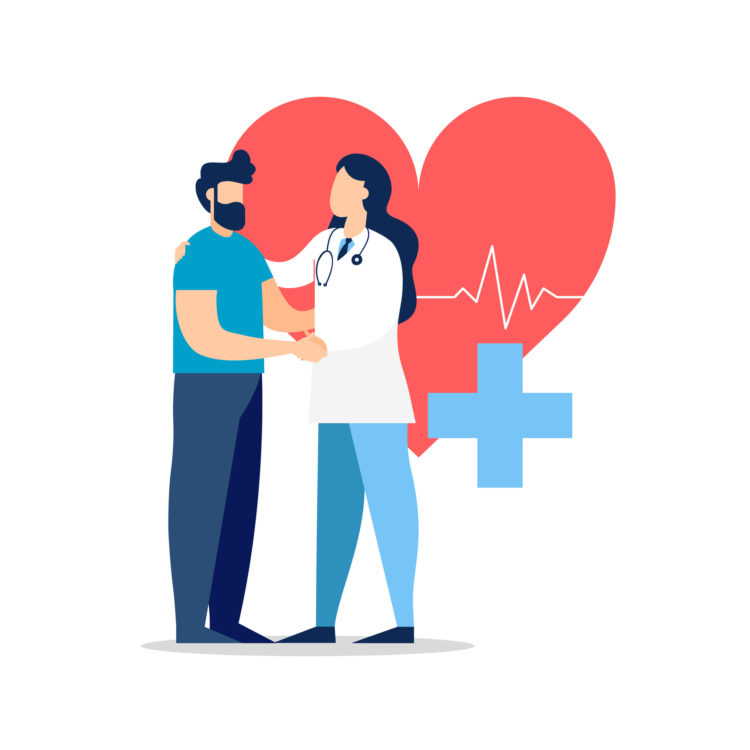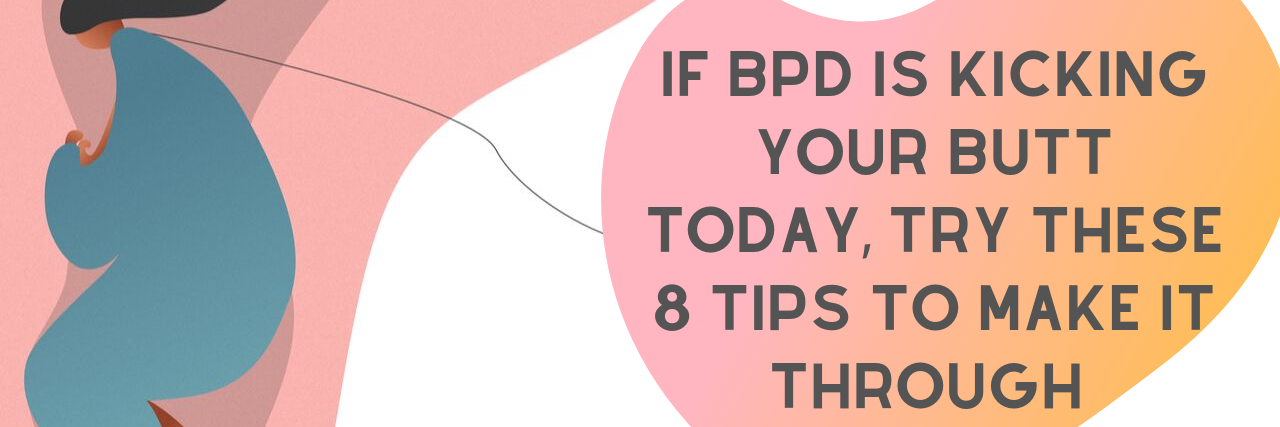If BPD Is Kicking Your Butt Today, Try These 8 Tips to Make It Through
When you live with borderline personality disorder (BPD), it’s inevitable that you have some “bad days.” You know, those days when you’re struggling with “classic” BPD symptoms like fear of abandonment and mood swings?
Maybe today is one of those days for you. If it is, we want you to know you aren’t alone. To help you get through today, we turned to our community to share their go-to coping tips for making it through bad BPD days. We hope a few of these can help if you’re struggling right now.
You don’t have to go through BPD by yourself. If you want to connect with other borderline warriors who really “get it,” post a Thought or Question on The Mighty with the hashtag #BorderlinePersonalityDisorder. Our community is behind you 100%.
Here’s what our community shared with us:
1. Reach Out to Your Support System

On tough days, it can be easy to isolate. But oftentimes isolation is the last thing we need. If you’re struggling with suicidal thoughts, or are thinking about self-harm, reach out to someone you love. Pro tip: When you’re feeling good, write down a list of people you can contact in a downswing. This can make reaching out a lot easier when things go sideways.
“Reach out to your support system even when it’s the most difficult! I’m lucky enough to have an amazing group of people standing behind me, [who are] there for me when I need to talk about my emotions. They validate my emotions and sometimes my actions, but they never validate my actions when they are disruptive. Support is an amazing thing.” — Lauren W.
“Opening up to people about your illness can be scary, and you may lose some people in your life, but the people who truly love you and truly will benefit you will stay, try to understand and continue to be there for you.” — Kheyla T.
2. Make a Therapy Appointment

When was the last time you went to therapy? If you’re not on a regular schedule, it might be a good time to look into therapy options. Check out therapists in your area who offer sliding scale rates here. Though you probably won’t be able to go to a therapy appointment right this moment, knowing you have a future care plan in place can help get you through. If you are in crisis and need help right away, contact the Crisis Text Line by texting “START” to 741741.
“Therapy therapy therapy. Even if you feel you are doing well and don’t need it, having that steady schedule of being able to talk freely about your life and feelings is a lifesaver.” — Bryttni F.
3. Set Aside Time for Yourself

For some, isolation can be a recipe for feeling even worse, but for others, taking some time to be alone and reflect may be “just what the doctor ordered,” so to speak. If you’re feeling overwhelmed by your symptoms, take a step back and do something you enjoy. Try journaling or painting or reading a book. Do something that makes you feel a little bit lighter — even if it’s for just a moment.
“I’m learning to set a day aside for me. I have particular days that are harder for me, so I either stay home those days, or try to not do much socialization. I only have three non-school days, so I try to cram everything into most of those days, and relax or do less the others.” — Abbey S.
“Recognize when you need to disconnect. It’s OK to isolate and take care of yourself. All relationships are hard to us… The one relationship you need to work on is the one with yourself. Learn to love yourself. Take care of your well-being at all times and never feel guilty for doing so.” — Melinda G.
4. Find One Beautiful Thing to Focus Your Attention On

If your mind and emotions are going a thousand miles a minute, slow down and zone in on one beautiful thing you see. Maybe you see your pet, maybe you see a tree outside, maybe you see your partner. Whatever beautiful thing you pick, focus in on it, noticing what you like about it and what makes it stand out to you. This can help ground you in the present moment.
“When emotions are feeling too intense or out of control, find one thing in your sight that is beautiful, that makes you happy. Focus on that. Then find another. Keep finding the beautiful things that surround you, and you will feel your emotions lightening.” — Becca M.
5. Surf the Urge

If you’ve never heard the expression “surf the urge,” it basically just means to ride out the present urges you may be feeling. Like a wave, urges eventually break and subside. The idea behind surfing the urge is to wait out the urge without acting on it. Whether you’re struggling with urges to self-harm, impulse-shop or binge eat, when riding it out, it can be helpful to distract yourself. If you need someone to distract you, head to our #DistractMe page to get support from our community.
“Trust the process… surf the urge..” — Cassandra N.
6. Do Something Physical

Sometimes it can be helpful to channel the energy you feel towards physical activity. If you need an emotional release, try releasing everything physically — do some jumping jacks, go for a walk or dance around your house while listening to heavy metal. Whatever you choose, get lost in the movements of your body.
“Drag yourself out for a walk or a trip to the gym.” — Jackie C.
7. Focus on Your Breath

One of the key tenets of mindfulness is focusing on the present moment by paying attention to your breath. If you have heard the word “mindfulness” but don’t know where to start, check out this guide for a quick 15-minute mindfulness session.
“Stole this from a place I used to work, but [it’s] so spot on for BPD and mental illness in general — ‘Is it a bad day? Or just a bad moment you can’t stop thinking about? Take a second. Breathe.’” — Mo L.
8. Remind Yourself Your Feelings Are Valid and You’re Doing the Best You Can

One of the most important things you can do when you’re struggling is to be kind to yourself. You’re doing the best you can, and that’s something to be proud of. Below are a few reminders from people in our community who have been there.
“Your emotions are still valid (even when they’re out of control). You’ve just got to find a way to express them in a healthy way.” — Stephanie A.
“You’re doing the best you can with the skills you have right now.” — Lorna O.
“Ride it out in the kindest and most loving way you can; you will come out the other side, you always do!” — Emma J.
Living with BPD can be difficult and exhausting at times. Learning how to cope is vital to not just surviving, but thriving. We hope these tips can help you on your health journey.
How do you cope with bad BPD days? Let us know in the comments.
Header Getty Images photo via XVI

